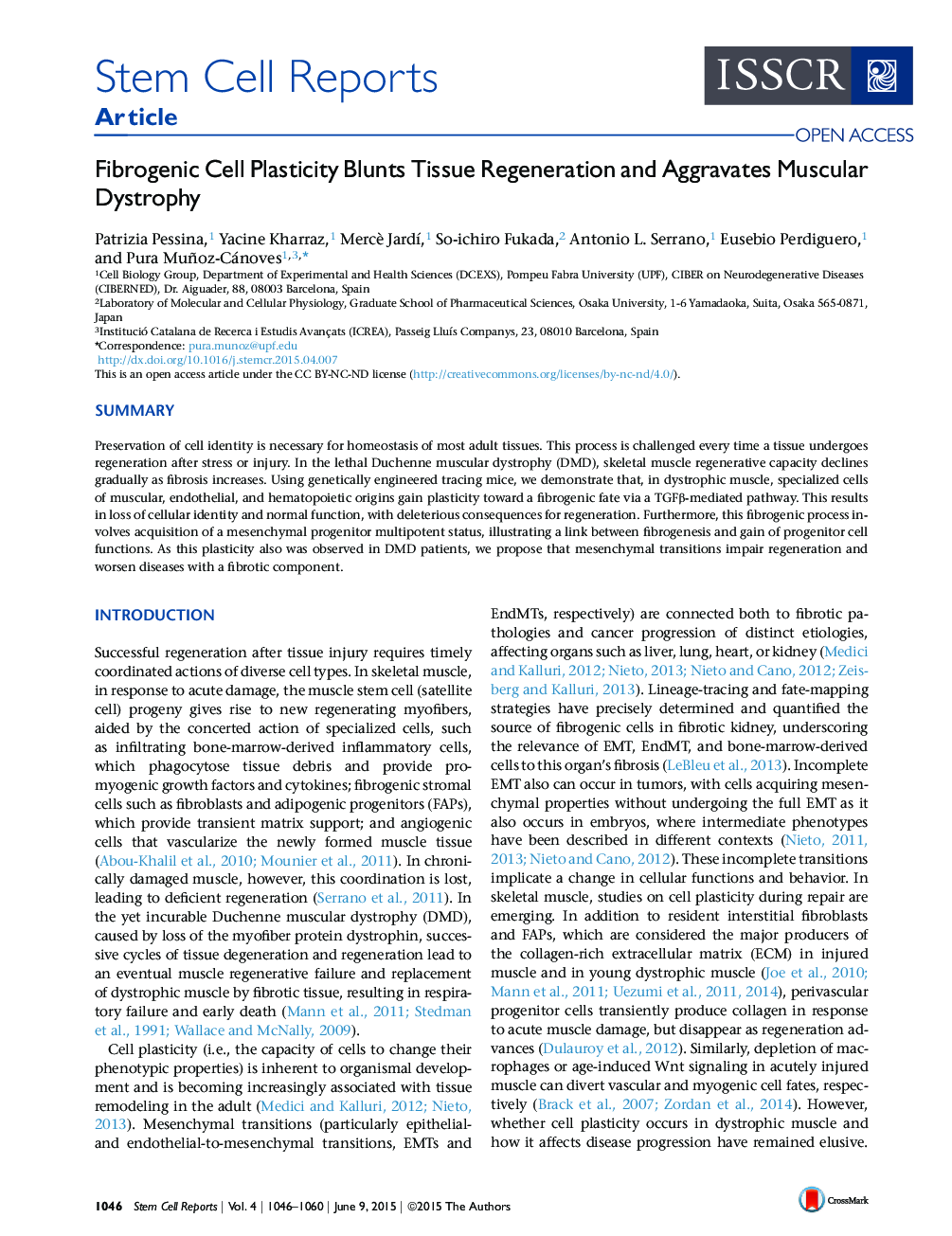| Article ID | Journal | Published Year | Pages | File Type |
|---|---|---|---|---|
| 2093545 | Stem Cell Reports | 2015 | 15 Pages |
•Regeneration declines as fibrosis increases in Duchenne muscular dystrophy (DMD)•Myogenic, endothelial, and hematopoietic cells acquire fibrogenic plasticity in DMD•This fibrogenic plasticity in DMD is induced by TGFβ and blunts muscle regeneration•Fibrogenesis occurs through an intermediate mesenchymal progenitor multipotent state
SummaryPreservation of cell identity is necessary for homeostasis of most adult tissues. This process is challenged every time a tissue undergoes regeneration after stress or injury. In the lethal Duchenne muscular dystrophy (DMD), skeletal muscle regenerative capacity declines gradually as fibrosis increases. Using genetically engineered tracing mice, we demonstrate that, in dystrophic muscle, specialized cells of muscular, endothelial, and hematopoietic origins gain plasticity toward a fibrogenic fate via a TGFβ-mediated pathway. This results in loss of cellular identity and normal function, with deleterious consequences for regeneration. Furthermore, this fibrogenic process involves acquisition of a mesenchymal progenitor multipotent status, illustrating a link between fibrogenesis and gain of progenitor cell functions. As this plasticity also was observed in DMD patients, we propose that mesenchymal transitions impair regeneration and worsen diseases with a fibrotic component.
